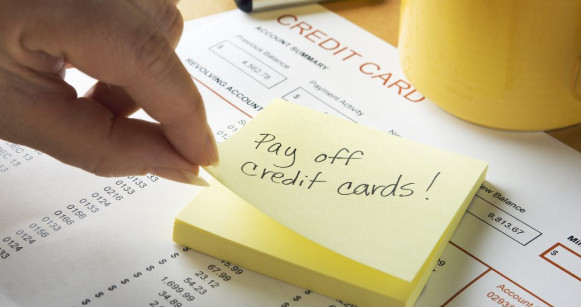Remaining debt-free on credit cards is essential to your mental and financial well-being. The following five prudent procedures can assist you in avoiding credit card debt:
- Establish and Follow a Budget
The cornerstone of financial stability is a budget. It assists you in monitoring your earnings and outlays, guaranteeing that you maintain a budget. Here’s how to make a budget that works:
Start by making a list of all of your monthly revenue sources and out-of-pocket expenses, such as rent, utilities, groceries, and entertainment.
Organize Your Expenses: Separate your spending into categories such as variable (entertainment, dining out) and fixed (rent, utilities). This makes it easier to see where you can make savings.
Establish Spending Limits: Assign a certain sum to every category and don’t stray from it. To keep an eye on your spending, use spreadsheets or budgeting tools.
Regularly Review: Check your budget every month to make sure that your spending and income have not changed.
You can prevent overspending and make sure you have enough money each month to pay your credit card bills by sticking to a budget.
- Make a monthly full payment of your balance.
Achieving debt avoidance primarily involves making complete monthly payments on your credit card balance. This is the reason why:
Prevent Interest Charges: The interest rates on credit cards are usually quite expensive. You can avoid these fees by making your complete balance payment.
Boost Credit Score: Paying off your bill on time can raise your credit score, which will make it simpler to obtain loans in the future with favorable terms.
Financial Discipline: It promotes healthier financial habits by encouraging you to spend just what you can afford.
Try to pay more than the minimum if you are unable to pay the entire amount in order to lower the interest you will be charged.
- Make Sensible Credit Card Use
The secret to staying out of debt is to use credit cards sensibly. Here are some pointers:
Reduce the Number of Cards: Excessive credit card use can result in overspending. Choose just one or two cards to help you better control your expenditures.
Watch Your Spending: Keep tabs on your expenditures and make sure there are no illegal charges on your credit card statements by checking them on a regular basis.
Set Alerts: To stay informed about deadlines and spending caps, sign up for your bank’s alert system. By doing this, you may remain on top of your bills and stay away from late fines.
Steer clear of cash advances: They can have exorbitant fees and interest rates. Use them only in case of dire need.
- Establish an Emergency Reserve
By serving as a safety net for your finances, an emergency fund keeps you from using credit cards for unforeseen costs. Here’s how to construct one:
Decide on a goal: Try to save enough money for three to six months’ worth of expenses.
Automate Savings: To guarantee regular contributions, set up automatic transfers from your checking account to your savings account.
Trim Superfluous Expenses: To increase the amount of money you have set aside for your emergency fund, identify and cut any non-essential spending.
Make Good Use of Windfalls: Contribute bonuses, tax returns, and other windfalls to your emergency savings.
You can manage unforeseen expenses without using credit cards if you have an emergency fund.
- Recognize and Control Your Credit Usage
The ratio of your credit card balances to your credit limits is known as credit usage. Maintaining a low ratio is critical to debt avoidance and a high credit score. This is how you handle it:
Maintain Low Balances: Try not to utilize more than thirty percent of your credit limit. Try to maintain your debt under $3,000. For instance, if your credit limit is $10,000.
Pay Off Balances Early: To maintain low utilization, pay off your amount as soon as feasible rather than waiting for your statement to appear.
Ask for a Credit Limit Increase: Make a request for a higher credit limit from your credit card provider if you have a solid payment history. Your utilization ratio may decrease as a result, but take care not to raise your cost.
Keep an Eye on Your Credit Report: Ensure that your utilization is appropriately reflected on your credit report by checking it on a regular basis to identify any inaccuracies.
You can keep your credit score high and stay out of debt by controlling how much of your credit you use.
In summary
It takes strategy, discipline, and a proactive approach to money management to avoid credit card debt. You may maintain debt-free status and attain financial stability by making a budget, paying off your debt in full, utilizing credit cards sensibly, setting up an emergency fund, and controlling how much of your credit you use. Recall that the secret is to make wise financial decisions and live within your means. To help you get back on track if you’re having financial difficulties, think about consulting a financial expert or credit counselor.

